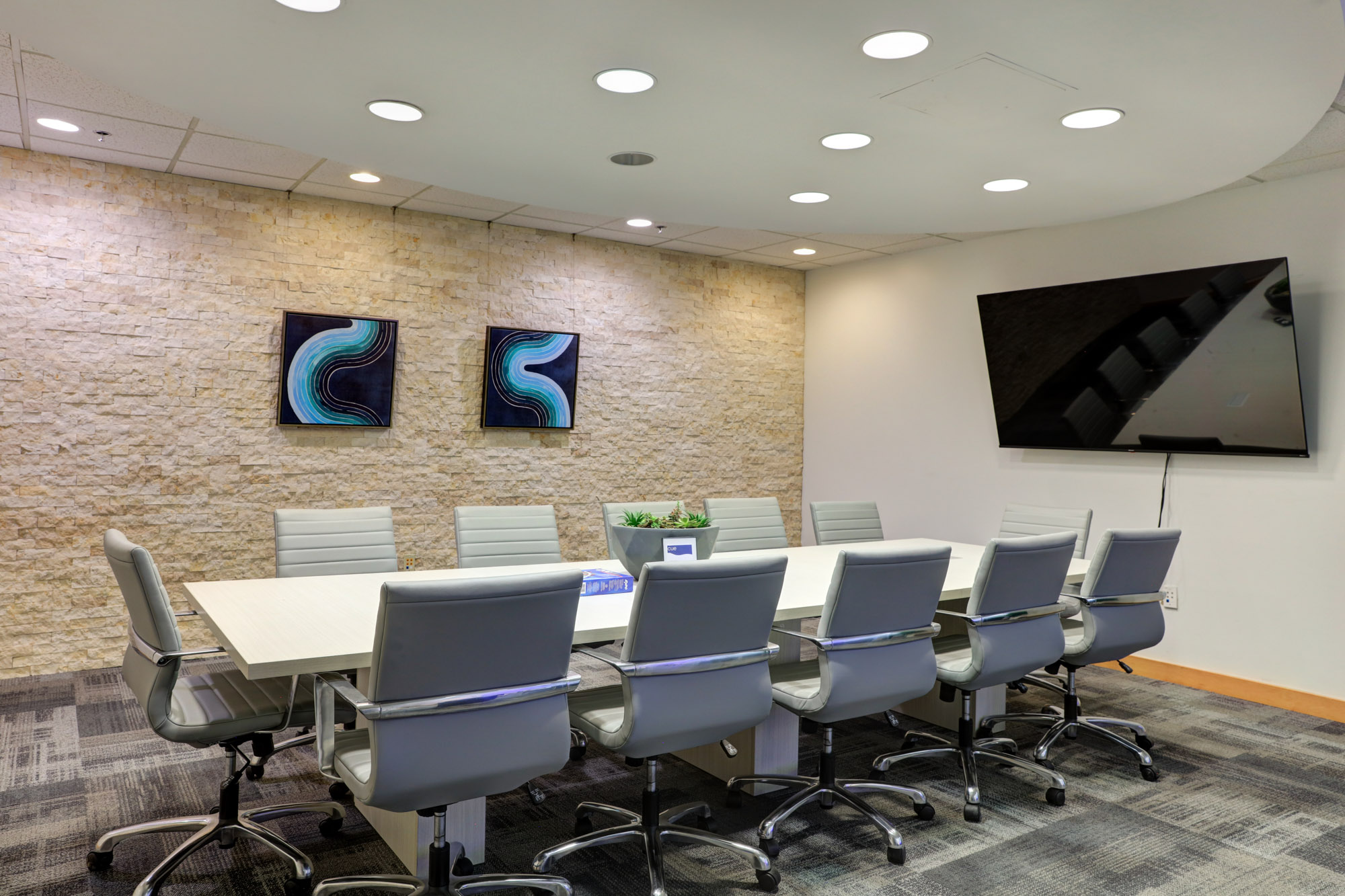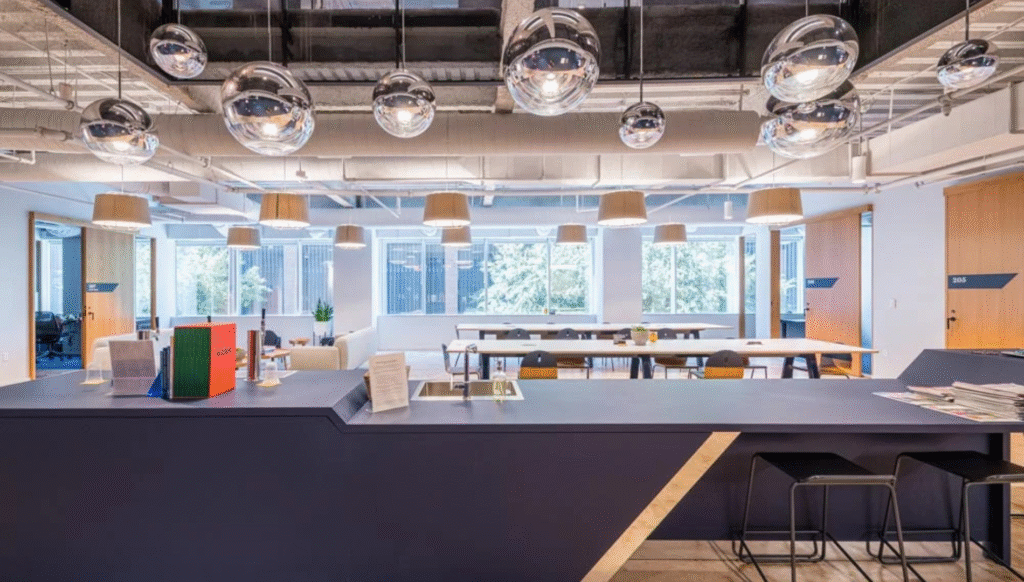
How are modern professionals reshaping the way we work outside of traditional offices? In recent years, co-working spaces have seen a remarkable rise in popularity among entrepreneurs and freelancers. These modern shared environments foster a vibrant, collaborative atmosphere that breaks away from traditional office norms.
They offer a compelling mix of flexibility, networking potential, and productivity-driven settings for professionals seeking more than a conventional workspace. Whether you’re looking for a shared office space or flexible office spaces for entrepreneurs and freelancers, these environments provide the perfect balance for independent workers and business builders. In this blog post, we’ll unpack the major co-working spaces benefits and examine how they support professional development and long-term success.
Table of Contents
What Are Co-Working Spaces?
Co-working spaces are shared work environments designed to bring professionals from various industries together. Unlike traditional offices, they focus on flexibility, collaboration, and creativity. These spaces often include open seating, private meeting rooms, high-speed internet, and essential office infrastructure.
As more people move away from conventional work setups, co-working spaces have become a go-to choice for content creators seeking both structure and freedom. Now that we’ve defined what co-working spaces are, let’s explore why they’re especially suited for entrepreneurs and freelancers.
Why Are Co-Working Spaces Ideal for Entrepreneurs and Freelancers?
In recent years, the concept of co-working spaces has gained immense popularity among entrepreneurs and freelancers. These shared workspaces offer a dynamic and collaborative atmosphere that goes beyond the limitations of a home office or crowded cafe.
Co-working spaces provide numerous advantages for individuals seeking flexibility, networking opportunities, and a productive environment to build and scale their businesses.
For entrepreneurs and freelancers, these spaces are particularly appealing due to their cost-effective nature. Renting an entire office can be financially burdensome, especially in the early stages of a business.
Coworking spaces benefit from access to premium amenities, professional infrastructure, and community events, all at a fraction of the cost of a private office. But cost savings are only the beginning. The true strength of co-working lies in the professional community it fosters.
To understand more about the coworking space benefits and how it truly supports freelancers and entrepreneurs, let’s explore the different types of co-working spaces and how each setup caters to varying needs.
Types of Co-Working Spaces :
Co-working spaces offer a variety of setups tailored to different needs:
Private Spaces: These are enclosed offices ideal for individuals or teams seeking more privacy and focused work areas.
Dedicated Desks: Reserved workspaces for regular use, offering a sense of ownership and consistency.
Conference Rooms: Fully equipped conference rooms for meetings, presentations, or collaborative team sessions.
Hot Desks: Flexible, unassigned workstations that can be used on a first-come, first-served basis, offering flexibility for those on the go.
Key Features of Co-Working Spaces :
To better understand how coworking spaces truly support freelancers and entrepreneurs, let’s explore the key features of coworking spaces at The Cue that come together to create an ideal work environment.
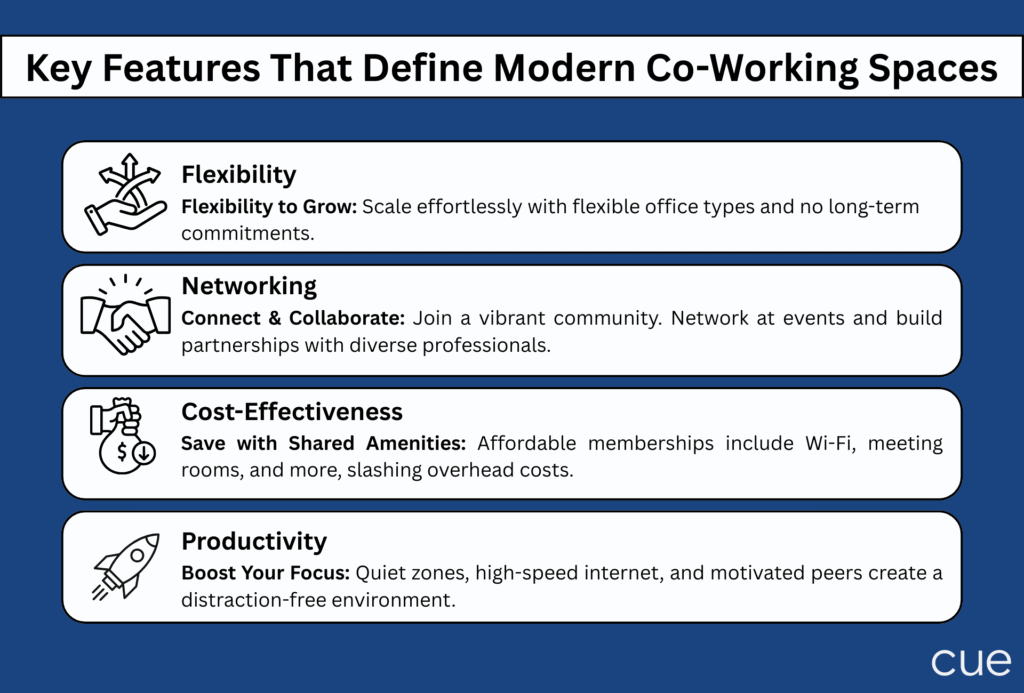
Built-In Networking Opportunities
One of the greatest strengths of co-working spaces is the built-in networking potential. Entrepreneurs and freelancers working in these environments naturally connect with people from diverse backgrounds and industries, which is one of the key coworking space benefits. This fosters a vibrant professional community that encourages knowledge sharing, collaboration, and mentorship.
Co-working spaces frequently host networking events, workshops, and seminars. These gatherings create valuable opportunities for members to meet potential clients, partners, and mentors.
Being surrounded by driven individuals opens the door to new perspectives, creative ideas, and meaningful professional relationships—all of which can contribute directly to business growth. Beyond networking, co-working spaces also play a critical role in shaping your daily work habits, especially when it comes to staying productive.
Increased Productivity and Focus
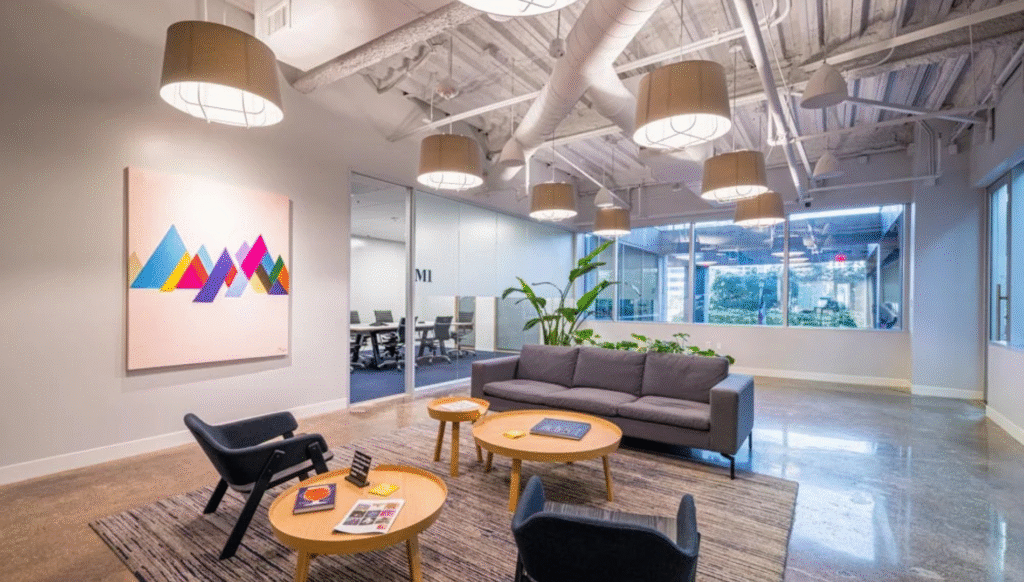
A major advantage of co-working spaces is their ability to enhance productivity. Unlike home offices or public spots like coffee shops, these environments are purpose-built to support focused work.
Quiet zones, private rooms, and high-speed internet help eliminate distractions and allow professionals to maintain a clear work mindset. The presence of other motivated individuals also builds a sense of accountability, especially for small business owners looking to grow. When you’re surrounded by people working toward their own goals, it’s easier to stay disciplined and hit your deadlines.
Co-working spaces also provide excellent opportunities for business networking, allowing entrepreneurs to forge connections that contribute directly to success. By minimizing common at-home interruptions, like household chores or family distractions, these spaces create a structure that supports better focus and efficiency.
Once you’re operating at peak productivity, the ability to adapt and grow your workspace becomes essential. That’s where co-working flexibility shines.
Flexibility and Scalability
Co-working spaces are designed with flexibility in mind, making them ideal for businesses that need to scale or pivot quickly. Whether you need a private office, a dedicated desk, or prefer the casual flow of hot-desking, co-working spaces provide customizable options to match your business’s current stage.
This flexibility also means there are no long-term commitments. Freelancers or startup founders can easily upgrade or downgrade their plans as their needs evolve.
This level of control over space and cost management is essential for growing businesses that want to stay agile without sacrificing professionalism. Equally important is having access to the tools and resources that make daily operations smoother and more efficient.
What to Look for in a Co-Working Space
Beyond a desk and Wi-Fi, co-working spaces offer essential tools that support your business operations and creative growth.
Essential Amenities
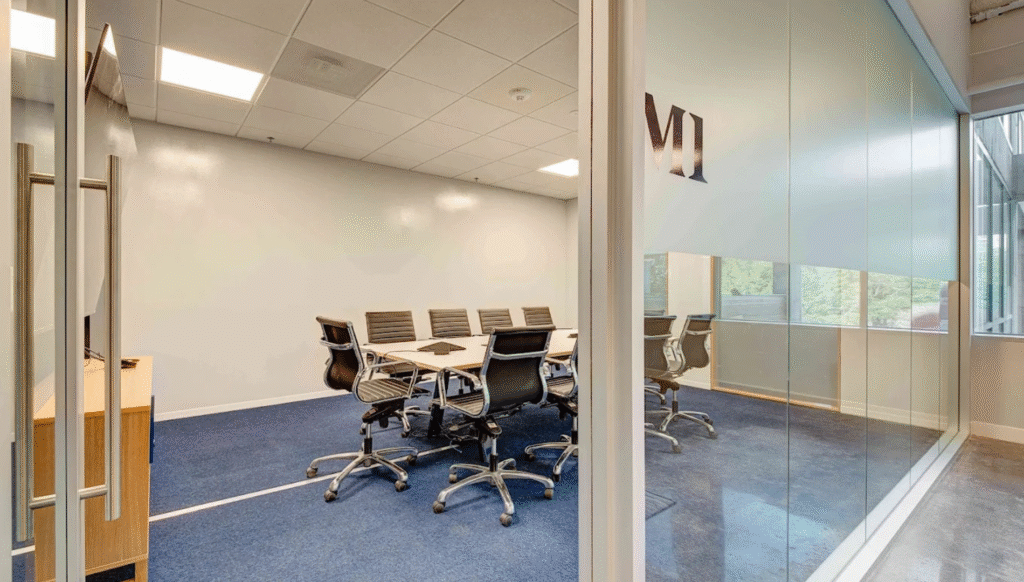
- Well-equipped meeting rooms for client calls, team discussions, and brainstorming sessions.
- High-speed internet and tech infrastructure to streamline your workflow with reliable connectivity and business tools.
- Communal areas, such as lounges and breakout zones, encourage networking or offer a break from focused work.
- Workshops and training sessions that keep you up-to-date with industry trends and expert advice.
- Creative stimulation from being surrounded by professionals from various industries, sparking innovation.
Location Advantage
- Choose a co-working space in a well-connected, business-oriented area to maximize accessibility and networking opportunities. The Cue offers well-placed co-working spaces across Dallas, making it easy for professionals to work in different parts of the city. These urban locations boost your professional image and bring together a vibrant community of small business owners.
- Look for spaces close to key industry hubs or major commercial districts to enhance business networking opportunities and increase collaboration with like-minded professionals.
Transport Accessibility
- Ensure the space is easily reachable via public transport or has sufficient parking to reduce commute time.
- Consider co-working spaces near airports or major travel routes, offering convenience for business travelers who need flexible and accessible workspaces.
Overall Amenities
- Flexible desk options, ergonomic furniture, on-site refreshments, and clean, well-maintained facilities are essential for a comfortable workday.
- Look for co-working spaces with unique perks like wellness rooms.
Each of these resources is designed to empower entrepreneurs and freelancers to work smarter, stay agile, and continually evolve their craft.
Conclusion
Co-working spaces offer a wide range of benefits for entrepreneurs and freelancers, from increased productivity and built-in networking to cost-efficiency and creative collaboration. These spaces have reshaped the modern work culture by combining the professionalism of an office with the flexibility and energy of a dynamic community.
By embracing the supportive and inspiring atmosphere of co-working spaces, professionals can fuel their growth, expand their network, and unlock new opportunities. For anyone looking to take their business to the next level, co-working might be the game-changing move that drives long-term success.
Frequently Asked Questions about Co-Working Spaces Benefits
1. How do coworking spaces impact employee well-being?
Co-working spaces enhance employee well-being by reducing isolation and creating a sense of community through daily interactions and networking opportunities. Their flexible work setups support better work-life balance, while thoughtfully designed environments minimize stress. Together, these elements promote mental clarity, motivation, and emotional resilience.
2. Why is coworking better than working from home?
Co-working spaces enhance employee well-being by reducing isolation and creating a sense of community through daily interactions and networking opportunities. Their flexible work setups support better work-life balance, while thoughtfully designed environments minimize stress. Together, these elements promote mental clarity, motivation, and emotional resilience.
3. Do coworking spaces increase productivity?
Yes, co-working spaces can significantly increase productivity. They provide a structured environment free from typical home distractions, helping individuals stay focused and meet deadlines more effectively. Surrounded by motivated professionals and equipped with business amenities, co-working spaces create the ideal atmosphere for consistent, high-quality work.

